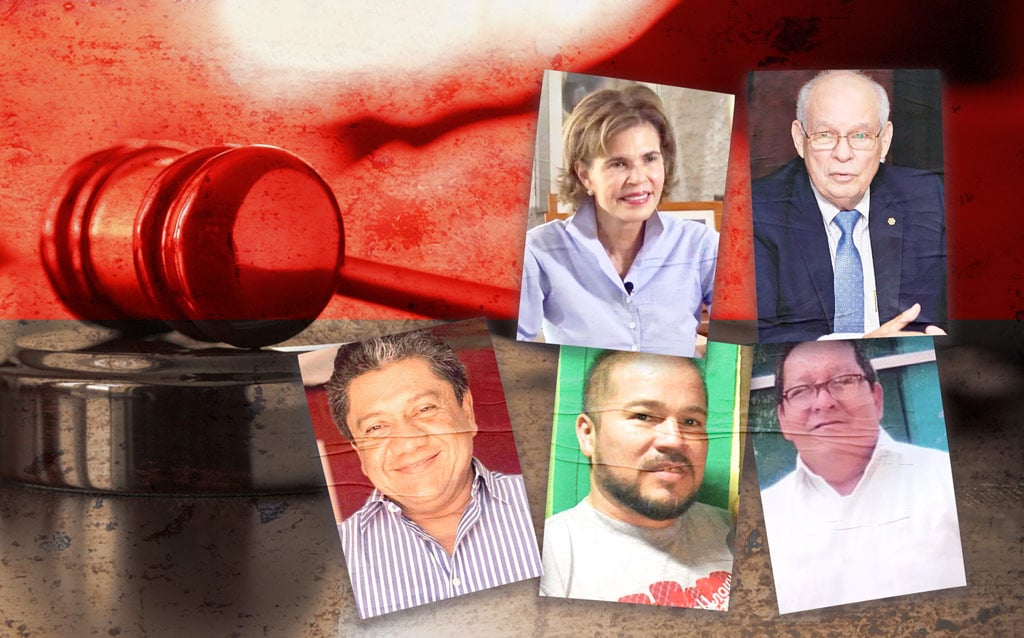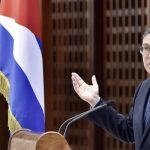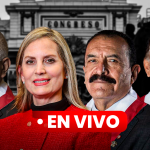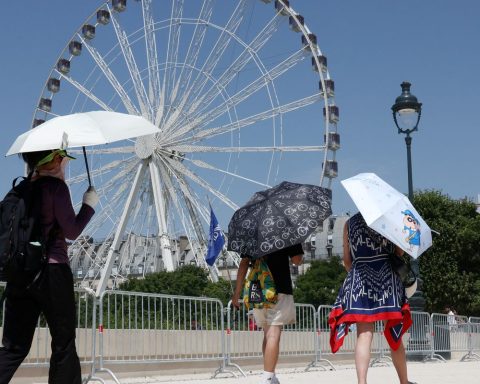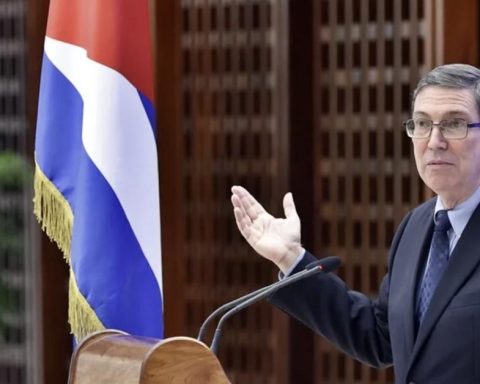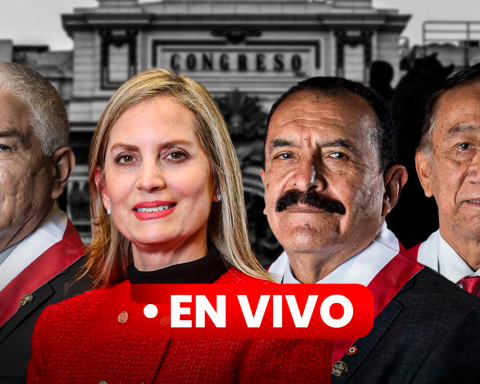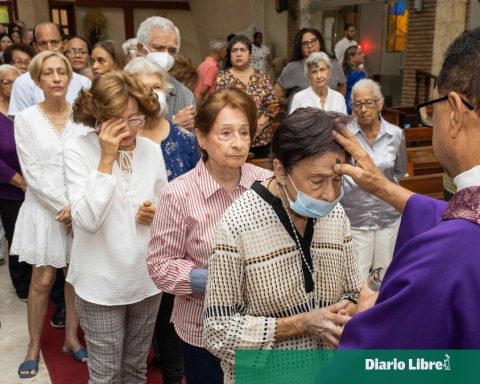Faithful to the script established in the political trials in Nicaragua, the Judge Luden Martín Quiroz, of the Ninth Criminal District Court of Managua, confirmed the convictions requested by the Public Ministry against the courts in a case against the Violeta Barrios de Chamorro Foundation (FVBCh). The former presidential candidate and former president of the Foundation, Cristiana Chamorro Barrios, was sentenced to eight years in prison: five years for the alleged crime of money laundering and three years for alleged misappropriation and improper retention.
The former employees of the Foundation, Marcos Fletes and Walter Gómez, were sentenced to 13 years each: five years for the alleged crime of money laundering; four years for the alleged misappropriation; two abusive management and two others for alleged ideological falsehood.
Former deputy Pedro Joaquín Chamorro Barrios, brother of Cristiana and former vice president of the FVBCh, was sentenced to nine years in prison: six for the alleged crime of improper appropriation and retention, and three for alleged abusive management.
Pedro Vásquez, Cristiana’s driver, was sentenced to seven years in prison for the alleged crime of laundering of money, goods and assets.
The five prisoners of conscience were sentenced on March 11 after seven days of hearings; the last three marathons, in which “they did not prove the commission of the crimes by the accused”, defenses pointed out.
The Nicaraguan Center for Human Rights (Cenidh) reported that the Ortega justice maintained the precautionary measure of “house arrest” for Cristiana Chamorro and preventive detention for the other four political prisoners, who have been in the Chipote cells for more than nine months.
?#SonNullSentences #SonInocentes We demand immediate freedom for former directors and former employees of the @FundVioleta #FreedomForPoliticalPrisoners @IACHR @OHCHR ?? pic.twitter.com/tjKkZppR9K
— Cenidh (@cenidh) March 21, 2022
“The Judicial Power, in addition to the prison sentences, imposed on everyone, except Pedro Joaquín Chamorro, two million-dollar fines, one in córdobas and the other in dollars, impossible to pay and if they were to be commuted they would be equivalent to life imprisonment,” denounced the Cenidh. A defense attorney revealed that the fines amount to 56 million cordobas; and $1.6 billion.
More than nine months in prison
The former president of the FVBCh was arrested on June 2 of last year. They accused her of the alleged crimes of abusive management, ideological falsehood in real competition with “money laundering”, after a State report indicated that the Foundation supposedly transferred funds for the strengthening of media between 2017-2020 to people and organizations that they seek “the destabilization of the smooth running of the country’s economic and social development.”
The main point of the accusation is that the FVBCh allegedly received 150 million cordobas from donors between 2015 and 2019, but they had 190 million cordobas in the banking system.
Among the beneficiaries for the alleged destabilization of the Nicaraguan Executive, the Prosecutor’s Office listed 13 independent media outlets, four non-governmental organizations and seven journalists.
DD defenders. H H. They have denounced that the judicial process against prisoners of conscience has been arbitrary and illegal. In addition, they point out that it has not been possible to prove the alleged guilt and the witnesses and evidence that are actually presented “cannot prove anything.”
Nine civilians presented by the Prosecutor’s Office, during the process against former directors and former employees of the FVBCh, as witnesses did not support the theory of alleged money laundering by the Foundation. On the contrary, they ensured that the relationship with the NGO was honest, transparent and correct. This, according to the Cenidh, shows that there is no evidence of the commission of a crime.
In addition, police officers who testified at the hearings contradicted themselves during interrogations. The testimonies collected by CONFIDENTIAL They indicate that the agents who signed the search reports raised many questions.
The relatives of the prisoners of conscience themselves noted that those who spoke before the judge were not the same ones who participated in the acts of “investigation” that served as “evidence” against the accused.
“The officers said that they had not participated in the proceedings and that they had only signed them, they even went so far as to say that they did not know where the evidence that had been seized in the raids had gone and they could not even say what it was that they supposedly proved. with their statements,” they said in reports from CONFIDENTIAL.
In this context, relatives of prisoners of conscience and human rights defenders demanded “heImmediate freedom for the former executives and former employees of the Violeta Foundation, because they are innocent”.
The opponents that Ortega avoided and imprisoned
Chamorro is the seventh opponent who aspired to be a candidate for the presidency of Nicaragua in the last elections to be found guilty and sentenced for the crimes of money laundering or treason against the country.
The other six are the academic Arturo Cruz, who was ambassador to the United States of the Ortega government between (2007-2009), from whom he distanced himself; the activist, academic and leader of the Blue and White National Unity, Félix Maradiaga, and the economist and nephew-in-law of former President Barrios de Chamorro, Juan Sebastián Chamorro.
Also the journalist Miguel Mora, founder, owner and former director of the television channel 100% Noticias, closed by the authorities and now broadcast on the internet platform; peasant leader Medardo Mairena; and the lawyer and conservative politician Noel Vidaurre.
The FSLN judicial machinery sentenced Miguel Mora, Medardo Mairena, Juan Sebastian Chamorro and Felix Maradiaga; and nine years in prison for Arturo Cruz and Noel Vidaurre.
The trial of Cristiana Chamorro is part of a series of judicial proceedings against forty opposition leaders and critics of the Sandinista government, who were imprisoned prior to those elections and were accused mostly of “treason” or money laundering.
*With information from Eph.
